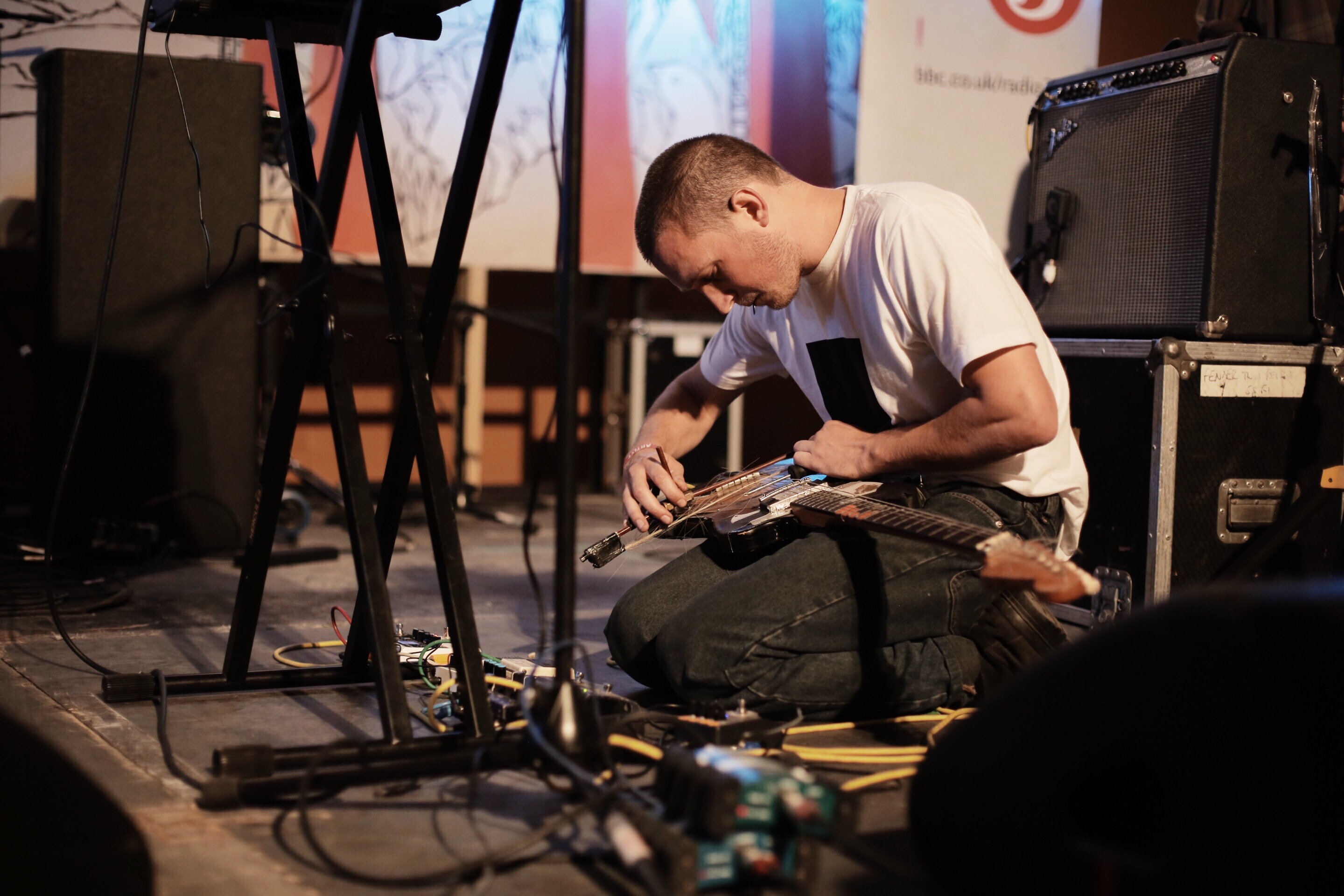Late Junction was the newest and most absorbing addition to End of the Road
The Radio 3 show brings Housewives, Laraaji and Xylouris White to the opening night in Dorset

It makes sense that a festival as genteel and musically curious as End Of The Road would find natural kinship with Radio 3, so when the station’s Late Junction programme – a collision of all things sonically unusual, from experimental electronica and abrasive punk to esoteric jazz and contemporary classical – takes over the festival’s Tipi stage on Friday night, the potential is for quite the love-in.
In the event, however, the evening removes both parties from their comfort zone: the sight of a saxophone player, topless and glistening with sweat, skanking past the Radio 3 logo, or the insistence from Late Junction’s anchor Nick Luscombe that the crowd “make loads and loads of noise”, would surely send a certain kind of licence fee-payer into anaphylaxis; equally, the phrase “ten-minute gong solo” is not exactly catnip to EOTR’s cabal of country-rock aficionados.
That tension, though, ends up being the night’s greatest virtue, with both the surroundings and inquisitive punters amplifying Late Junction’s flagship eclecticism and eccentricity.
Housewives’ combination of ecstatic skronk and feral, deliciously deviant groove feeds directly off that, and accordingly becomes the evening’s highlight, full of taught restraint, mesmeric incantations and a pulsating unity. With screwdrivers jammed into fretboards, blaring sax textures and a rolling togetherness throughout, the band start to resemble some sort of 20-limbed sea creature in front of an audience that seems as terrified as they are fascinated.
Xylouris White, too, feed off this energy. The duo, of lute player Giorgos Xylouris (who treats his instrument like it’s some sort of linking holy grail between proto-rock’n’roll and scabrous post-rock) and percussionist Jim White (who drums with a sort of manic, and-another-thing intensity), embark on a careening, endless quest for a downbeat, tumbling through their set with what appears to be telepathic communication. The constant push and pull of key signature, tempo and dynamics maintains intrigue, and the pair’s rather dazzling virtuosity by way of Aegean surf rock is the perfect climax to the night.
That’s not to say there aren’t mis-steps: Laraaji’s ambient soundscapes demand full commitment, and clearly have the potential to be quite the trip, but these are not the surroundings for that. Equally, Klein’s spatter of grime samples, tape loops and bizarre pat-a-cake clapping is performed with the sort of confrontational diffidence (or perhaps disregard) that begs for audience disengagement. That may be the point, but it nonetheless falls flat here.
That even the night’s stumbles are absorbing, though, is a tribute to this collaboration: this isn’t the mutual appreciation society that it may initially appear, but something far more knotty and nourishing. Like Late Junction itself, this is a night of satisfying, ear-opening, horizon-broadening exploration.